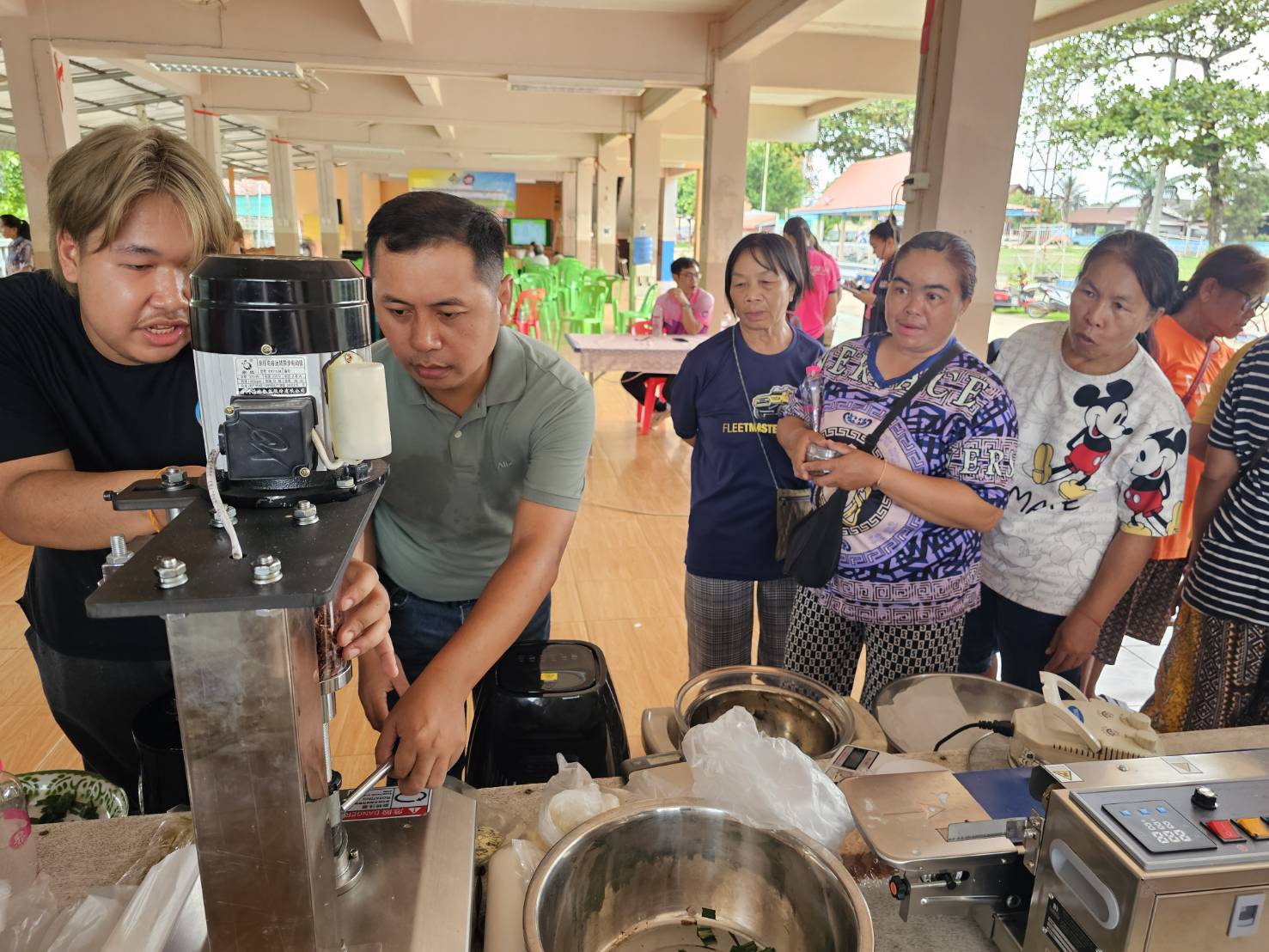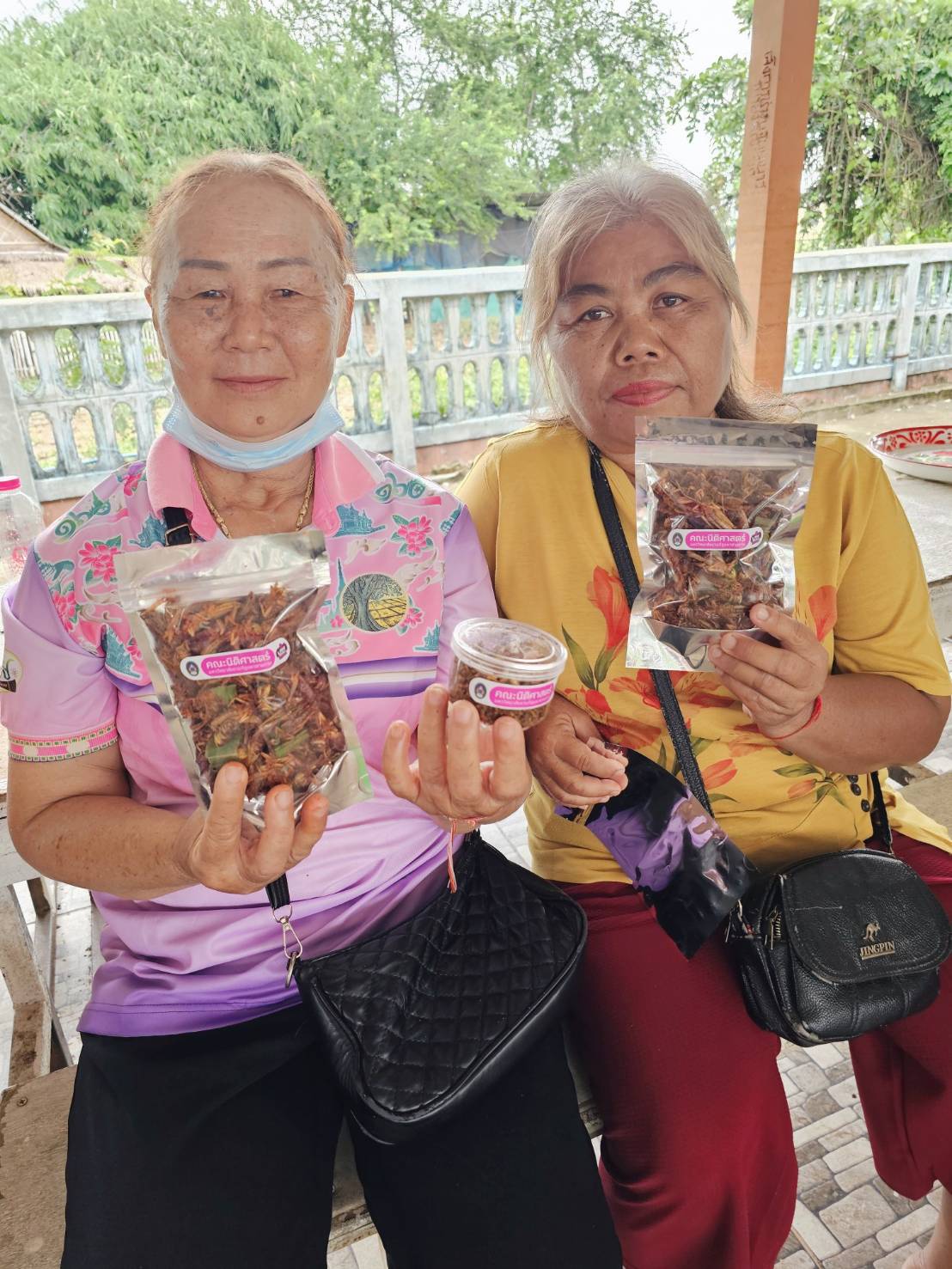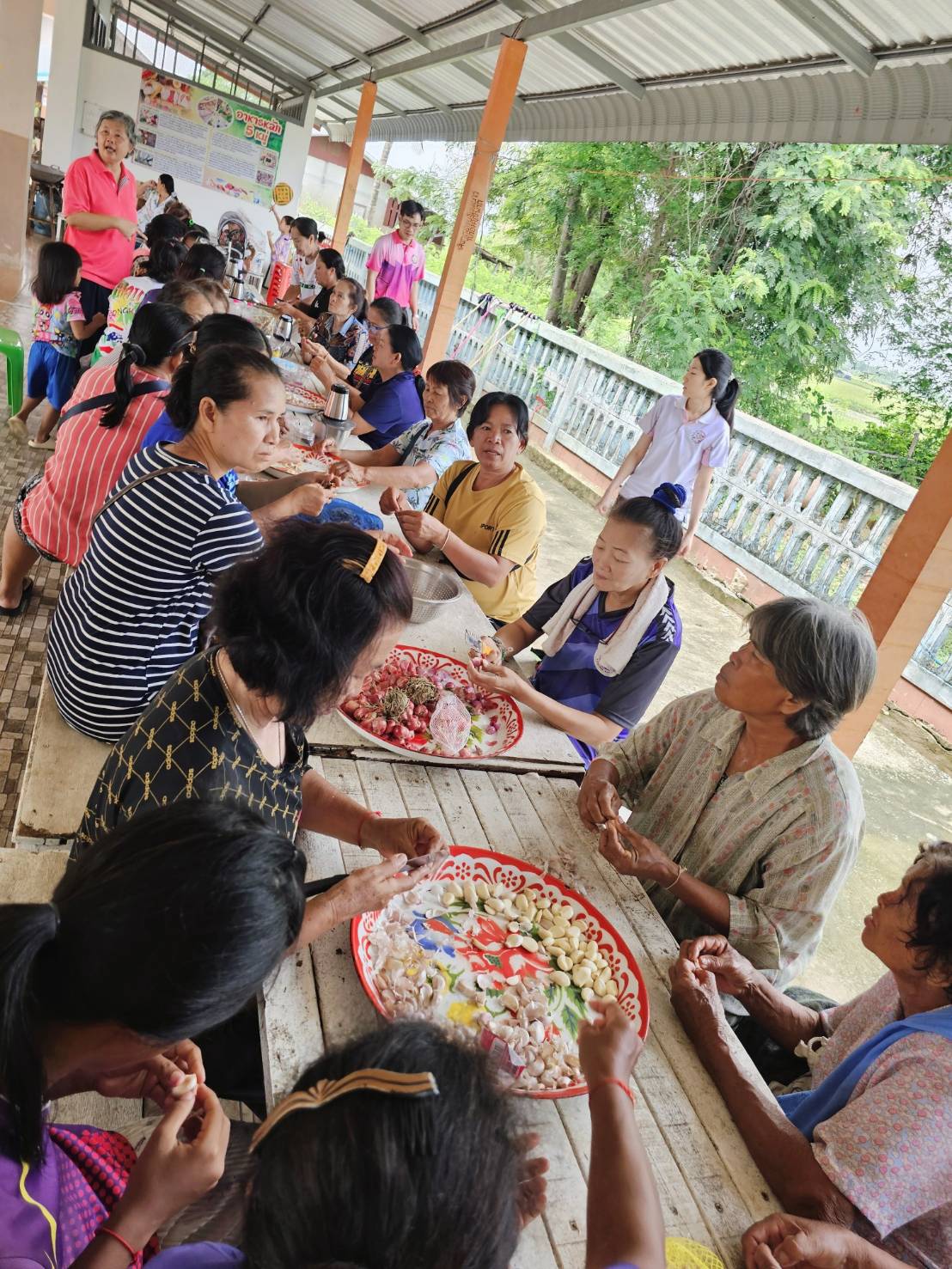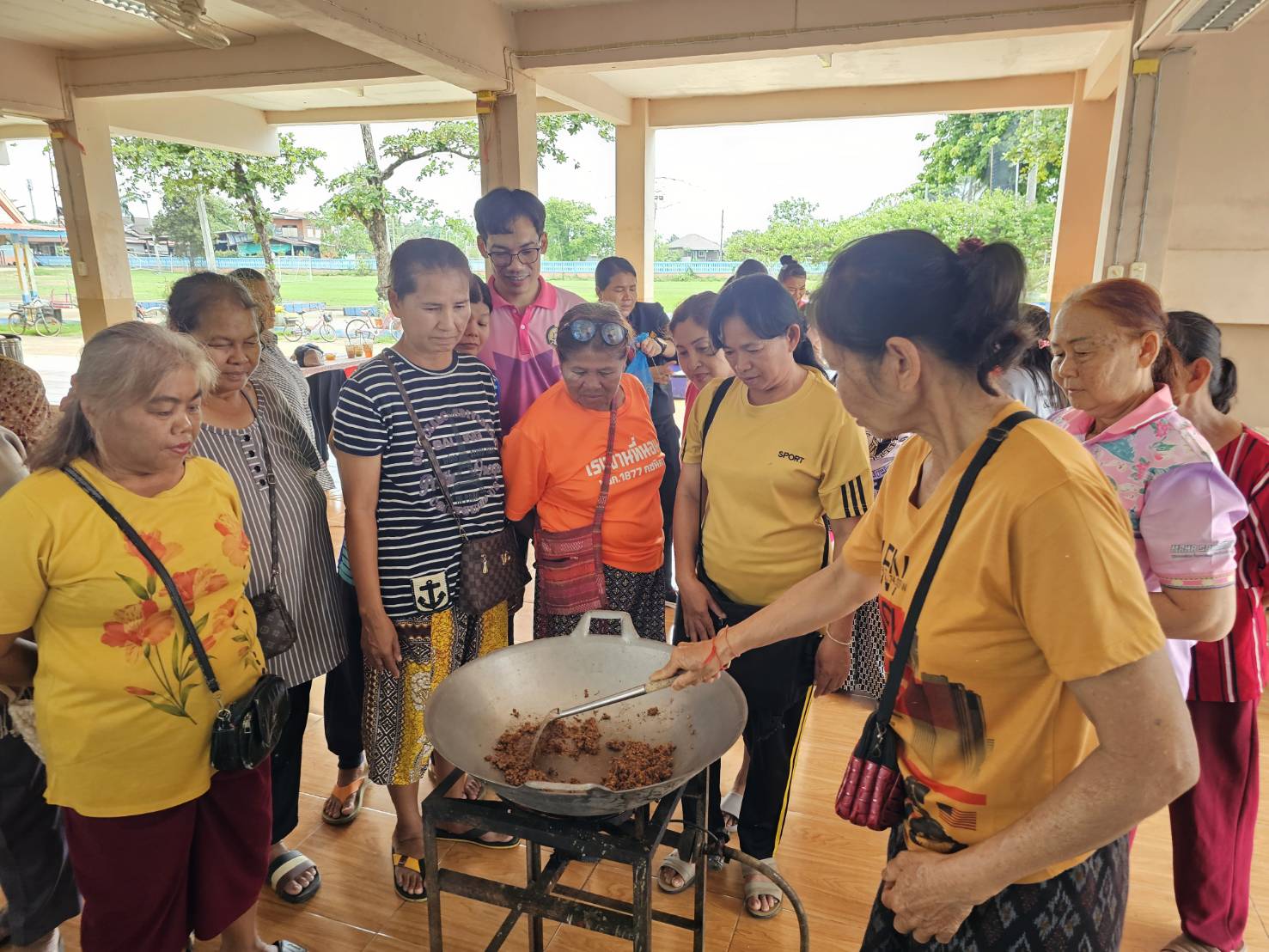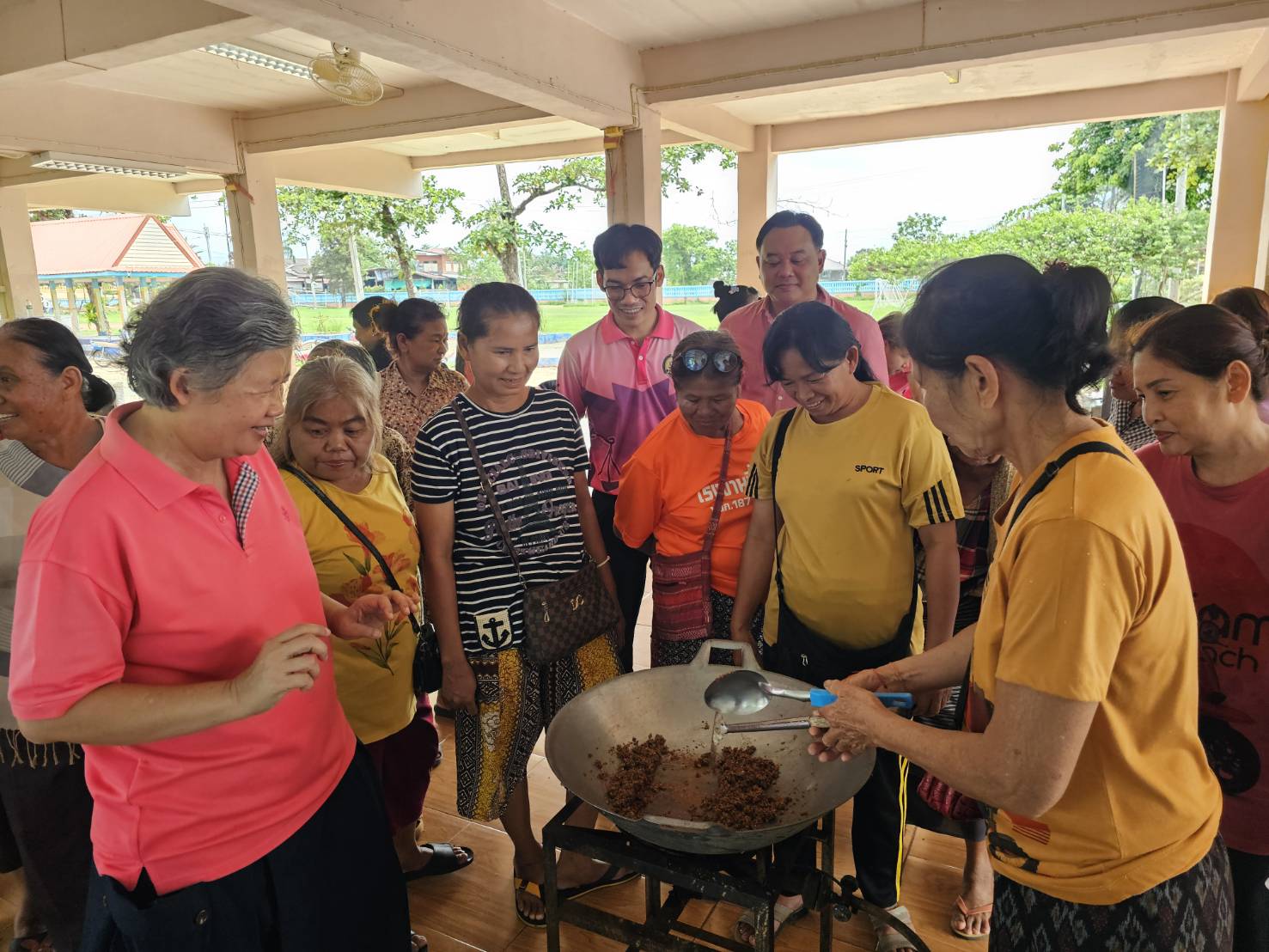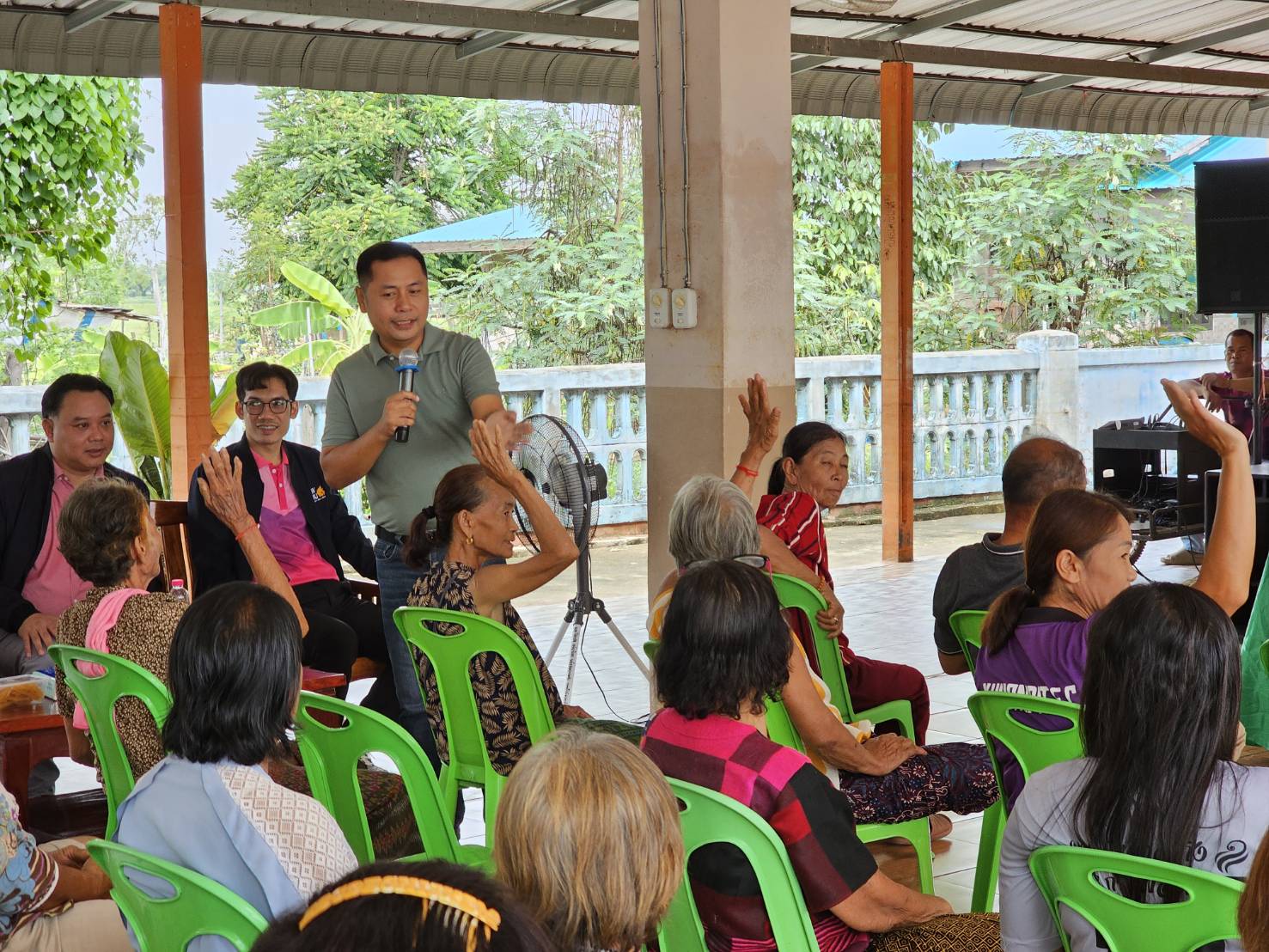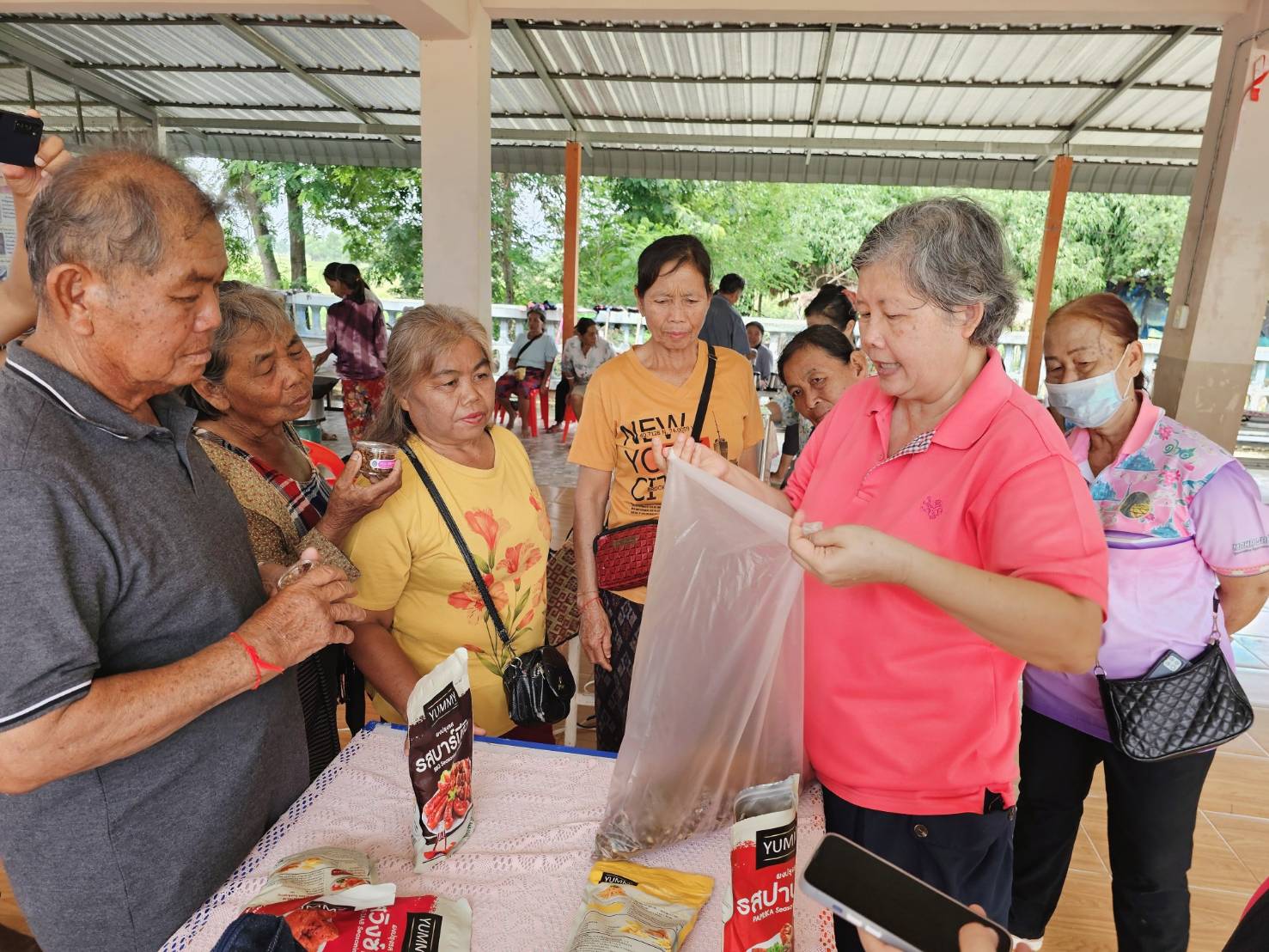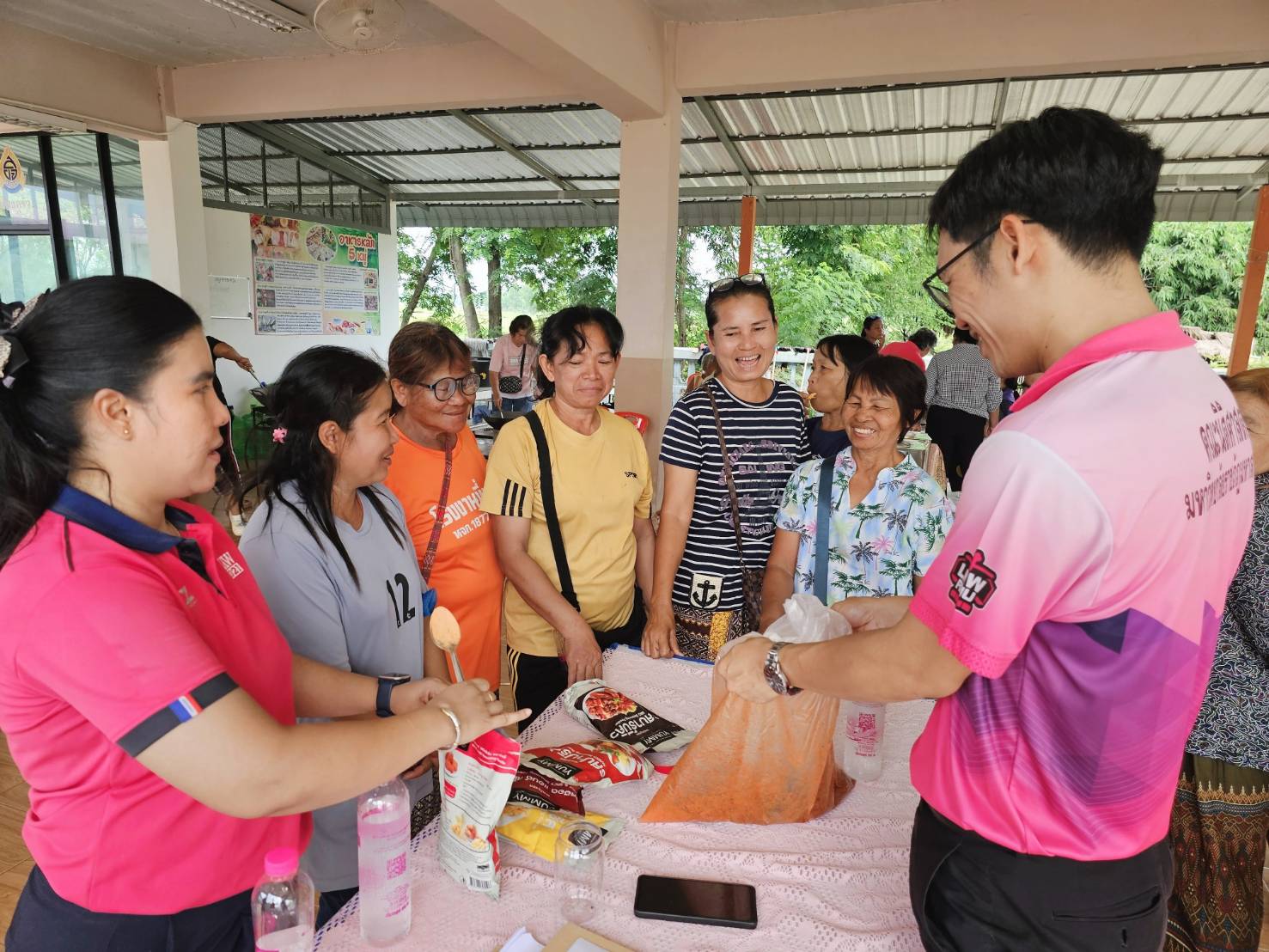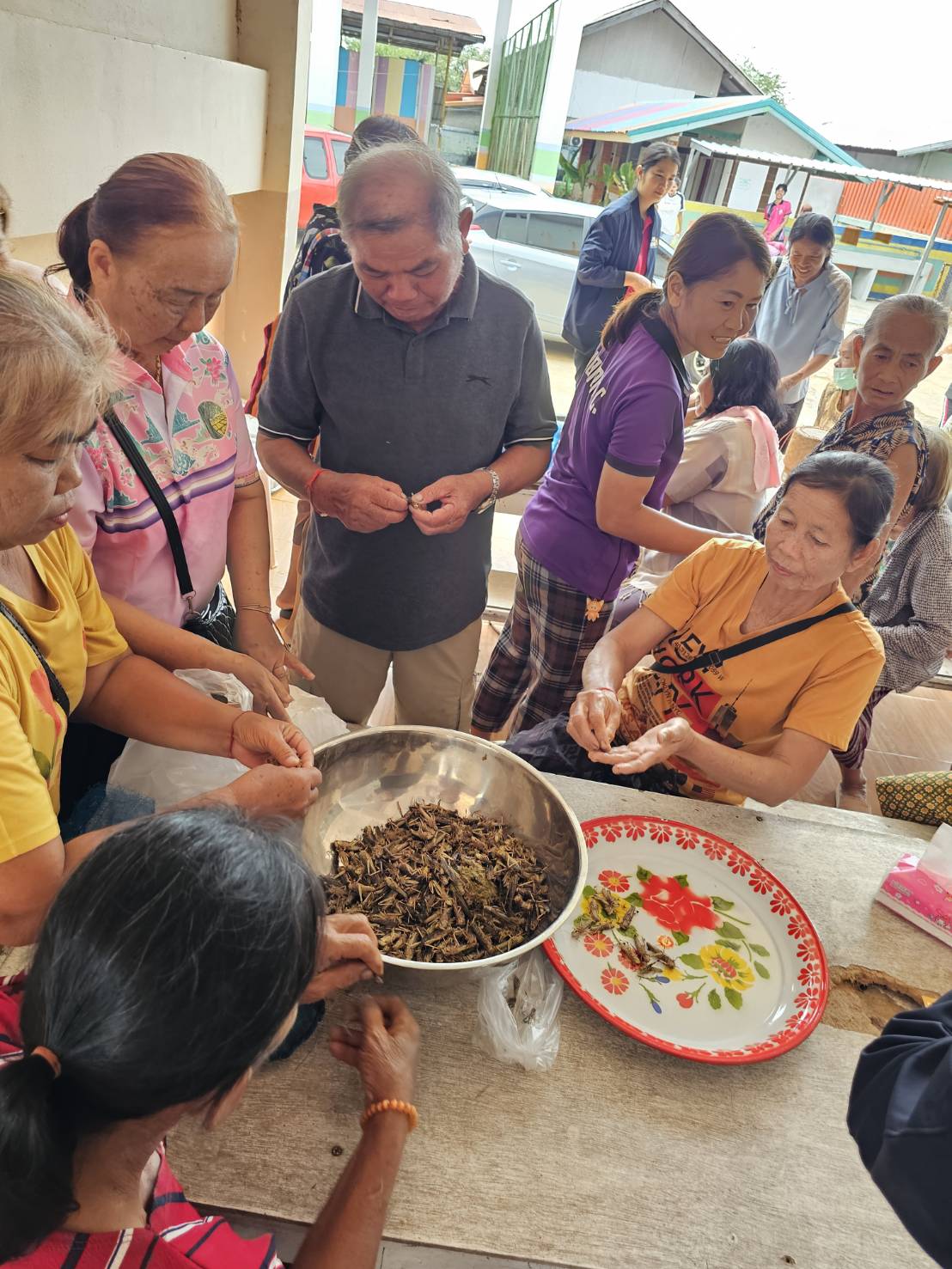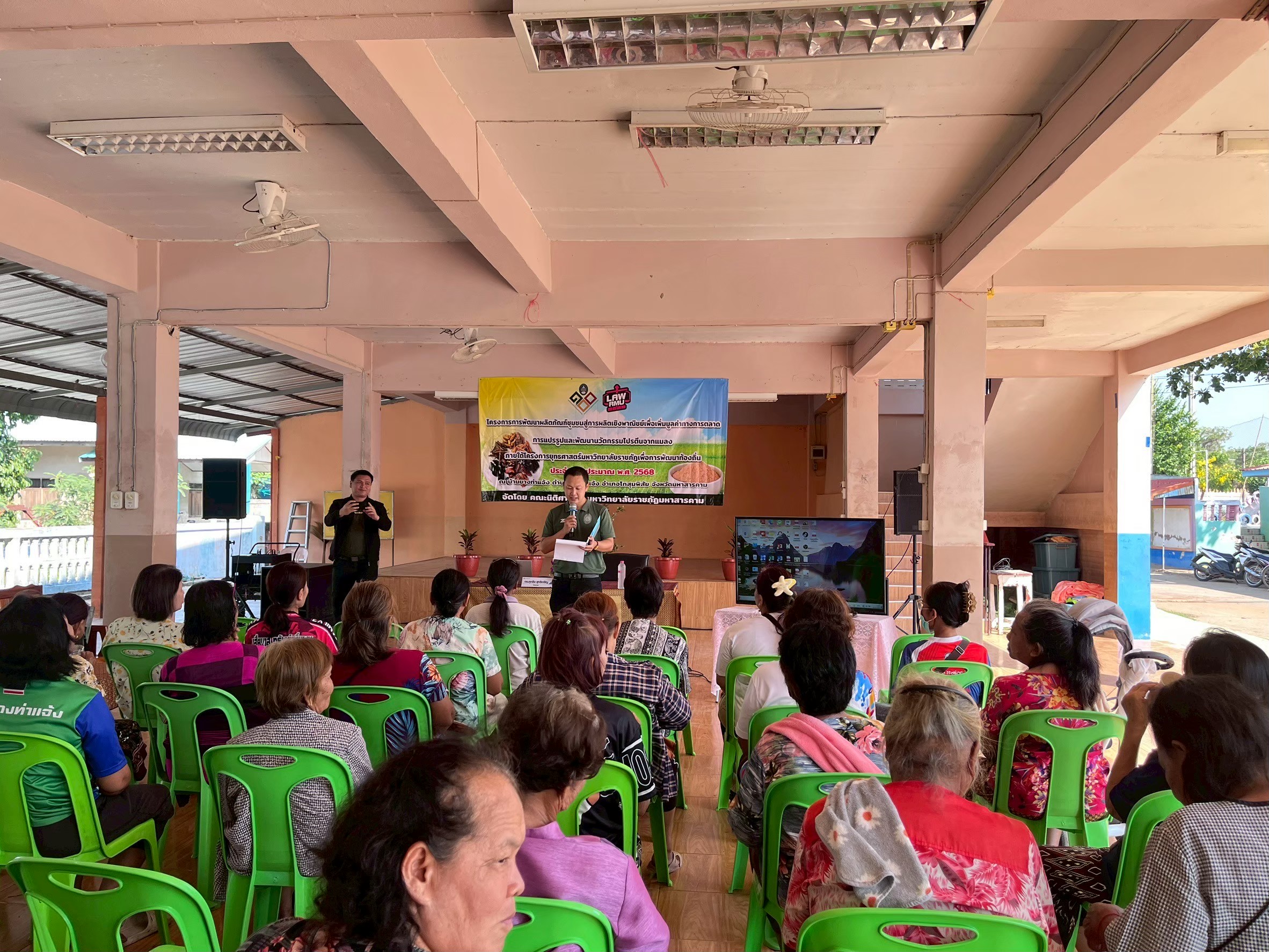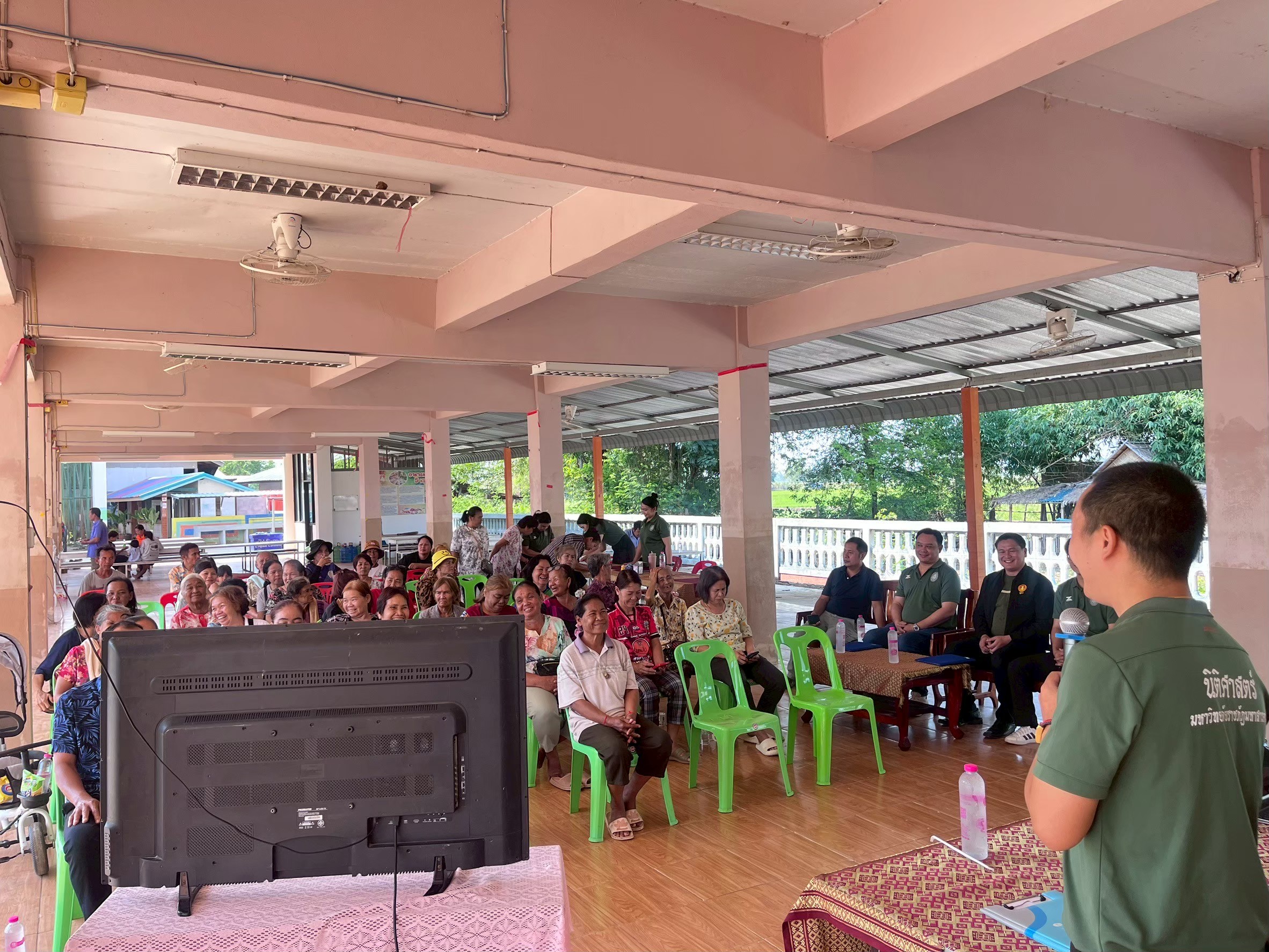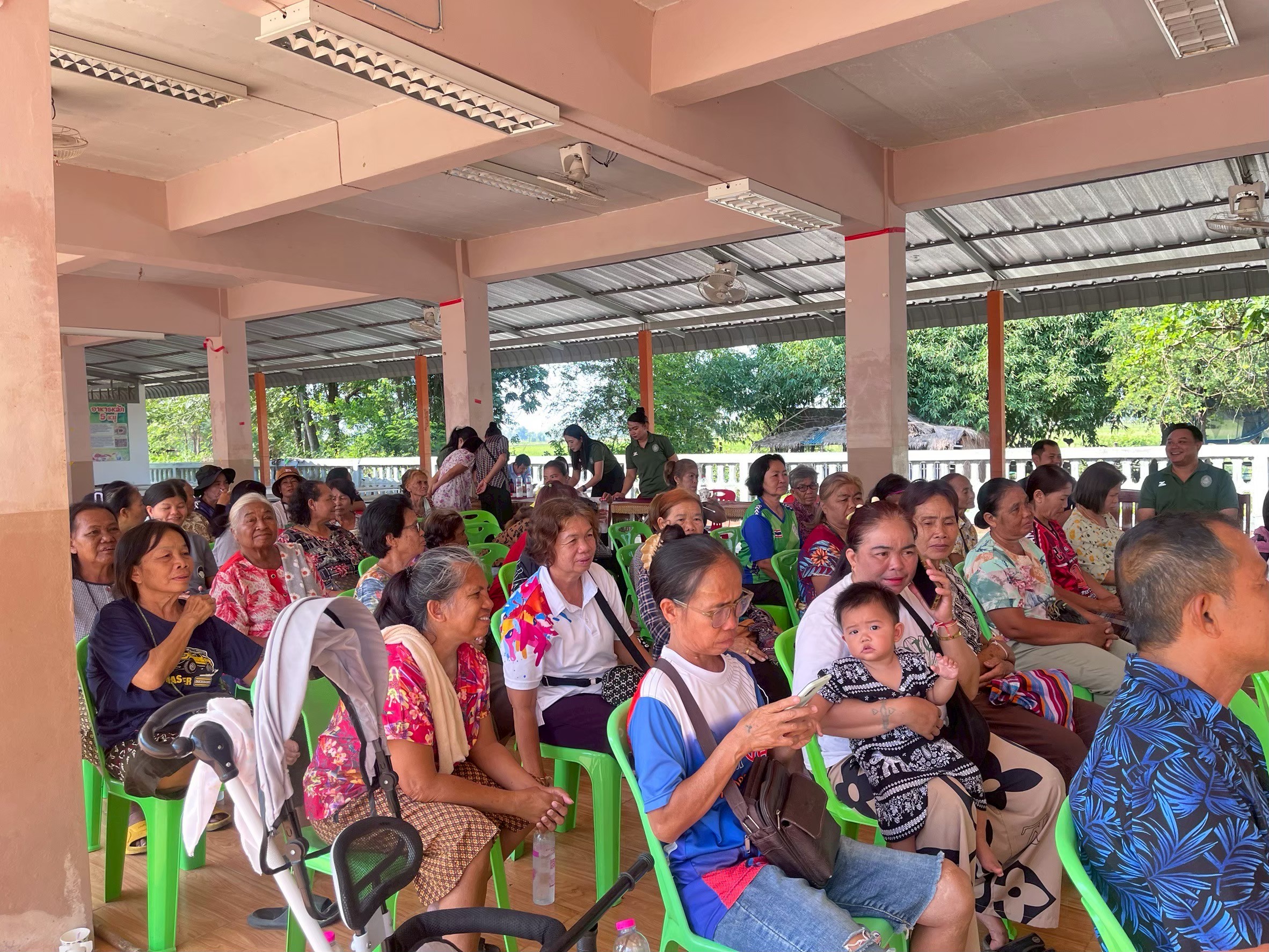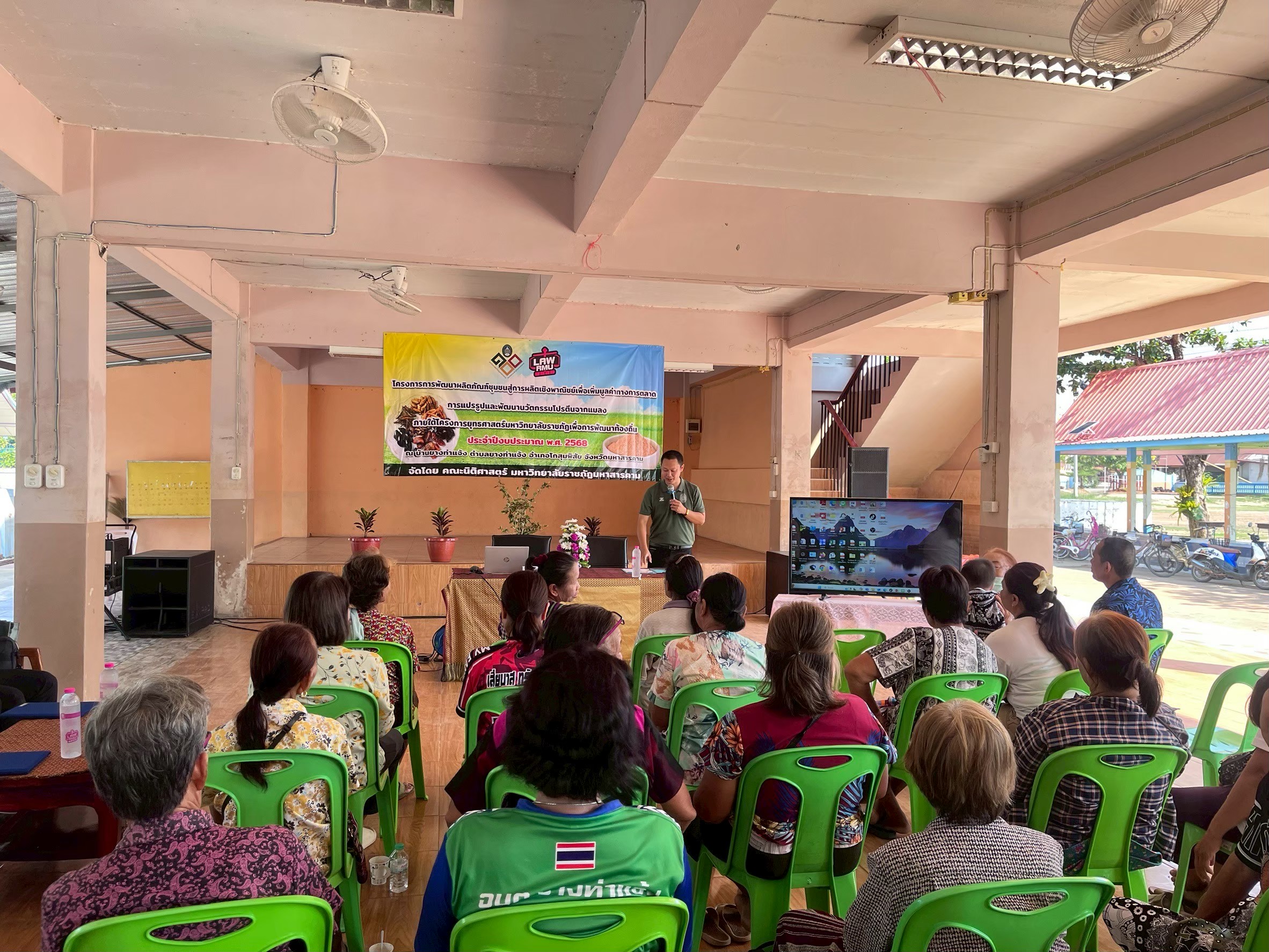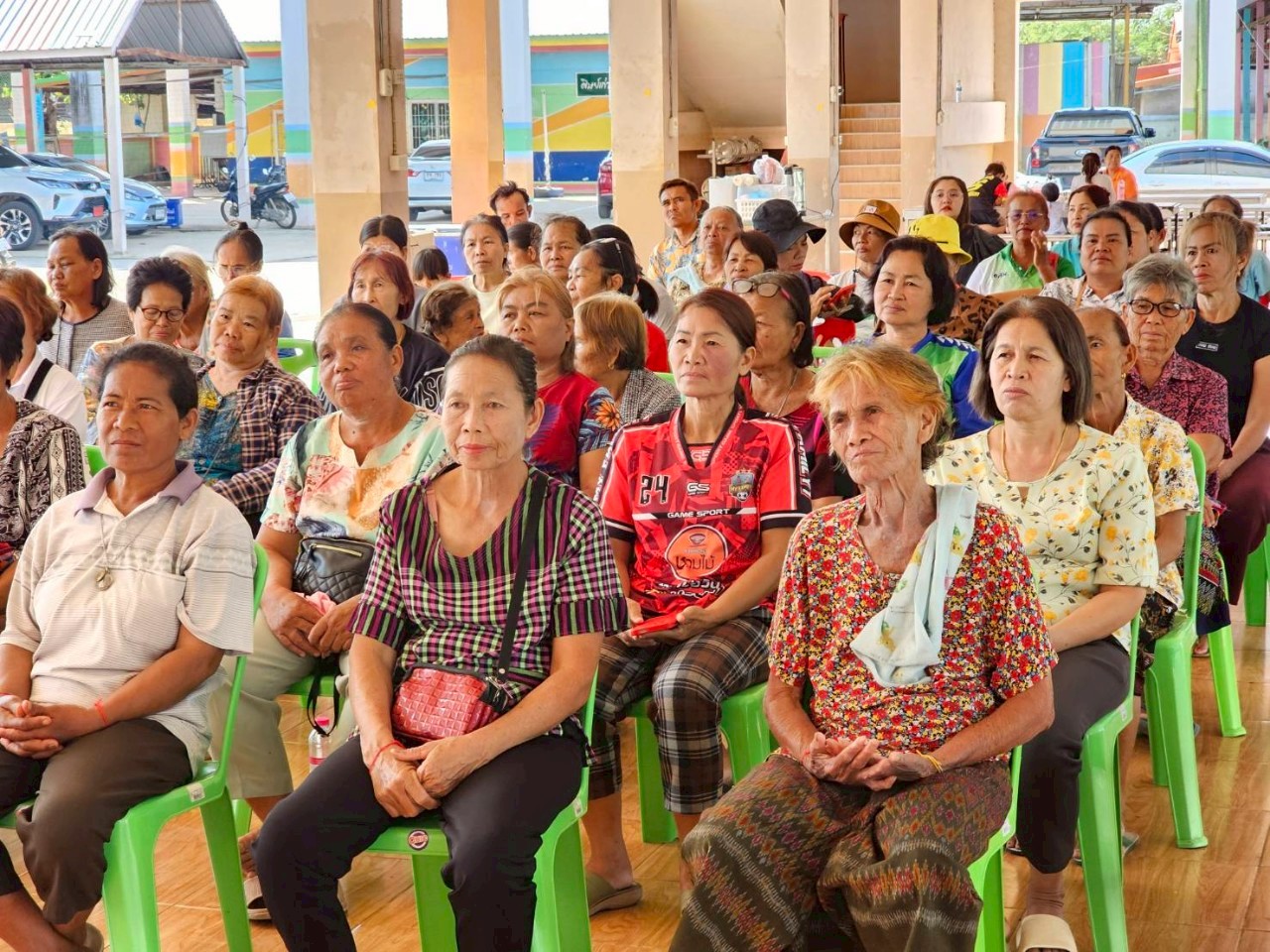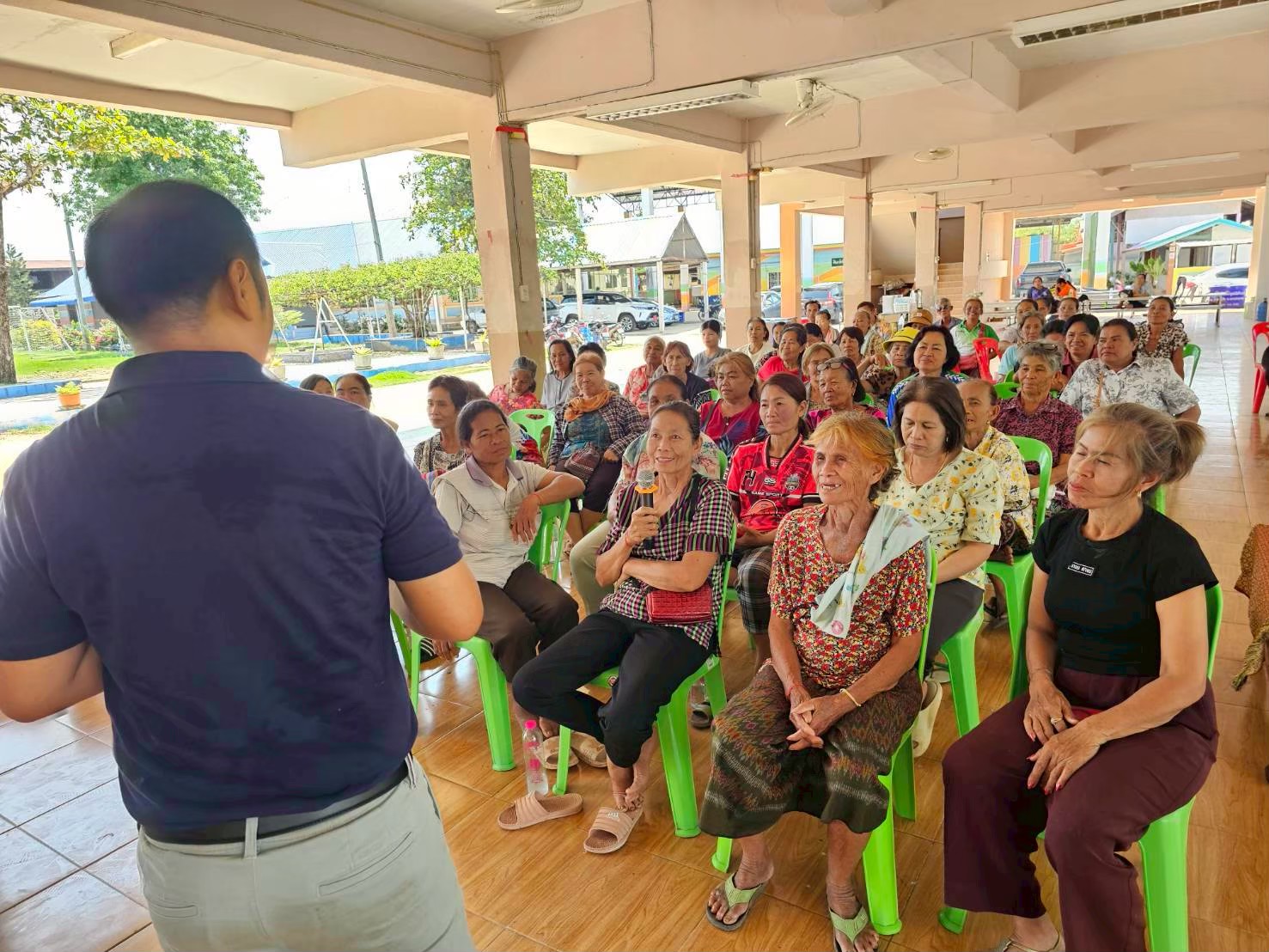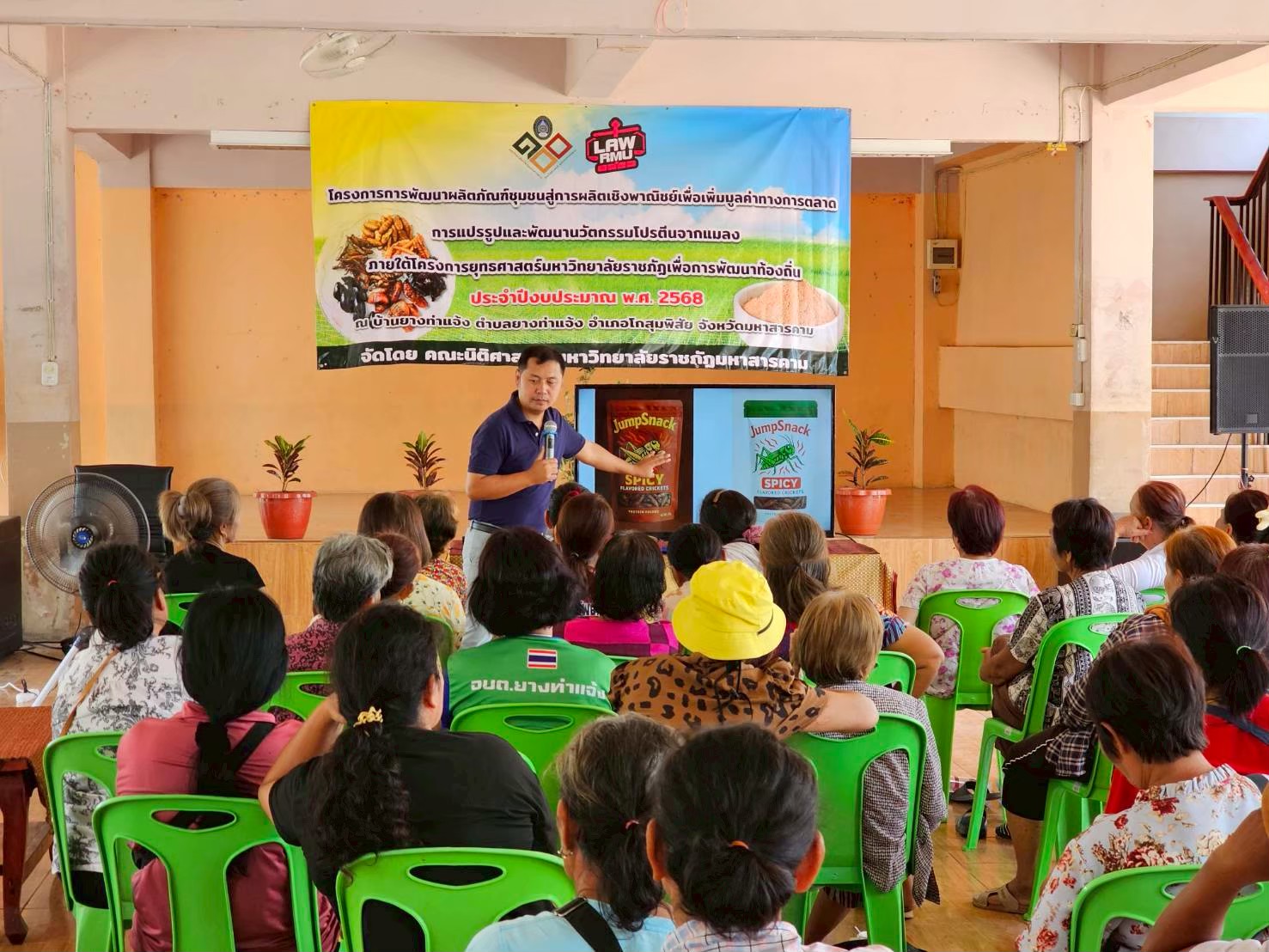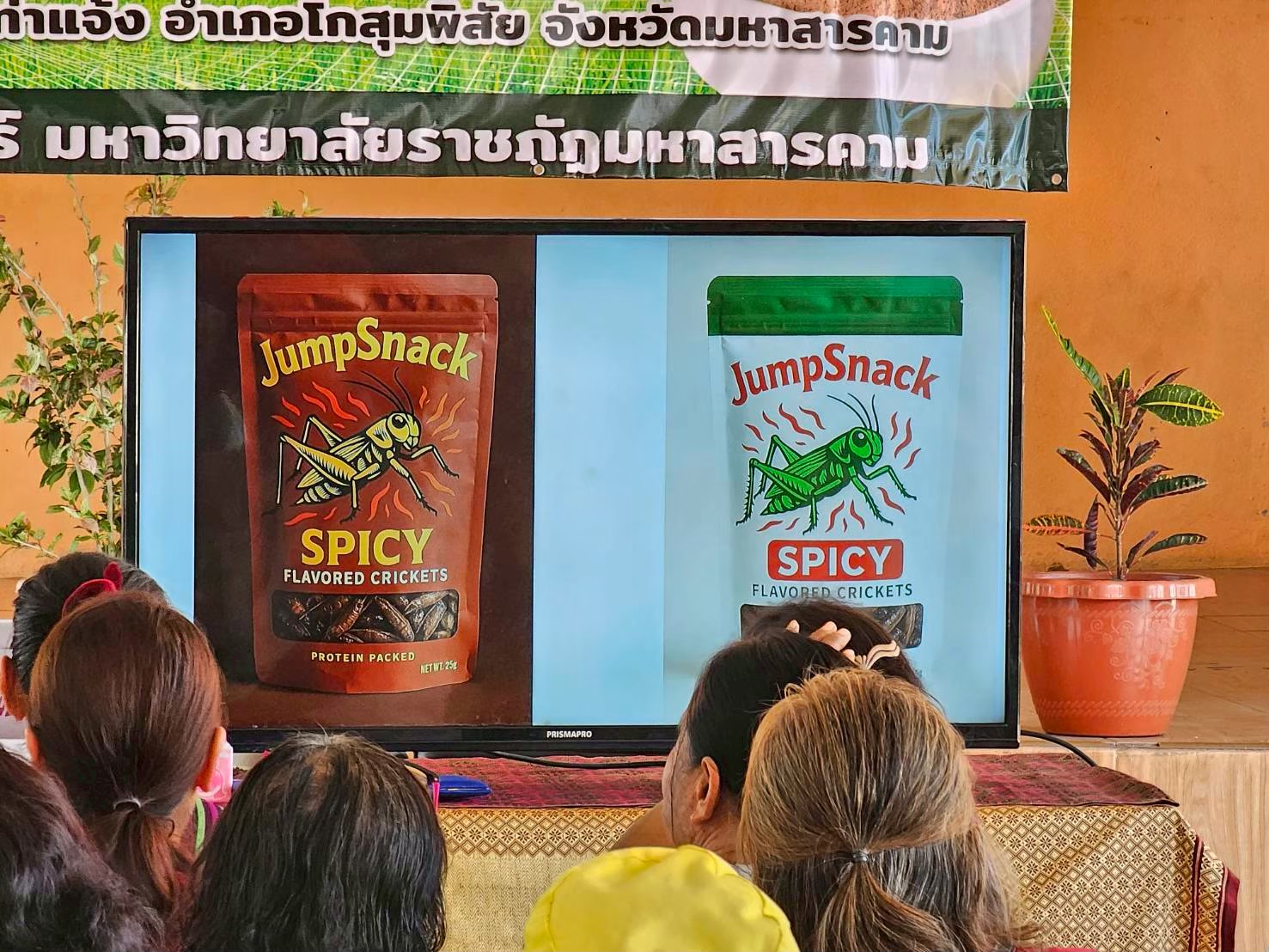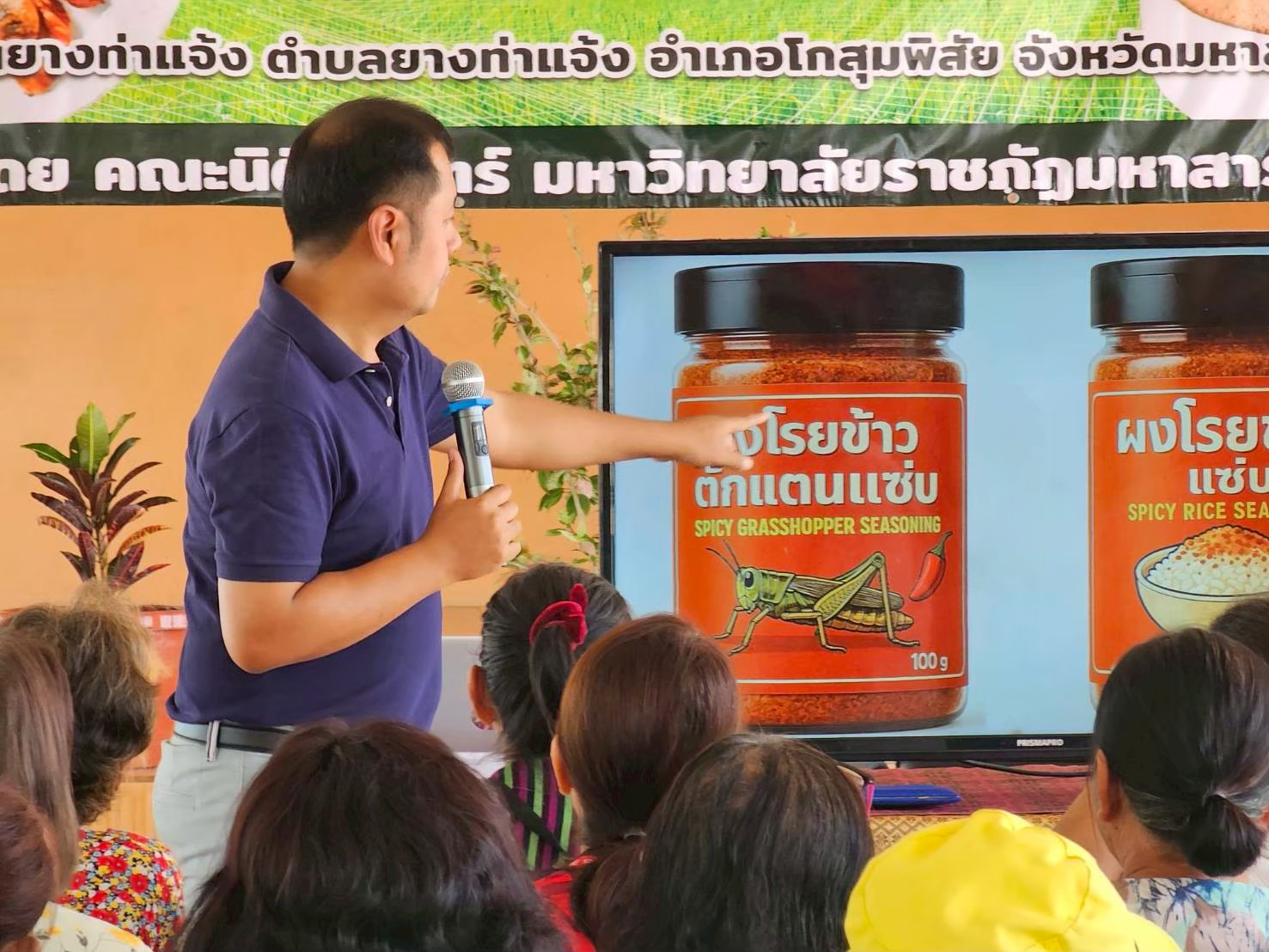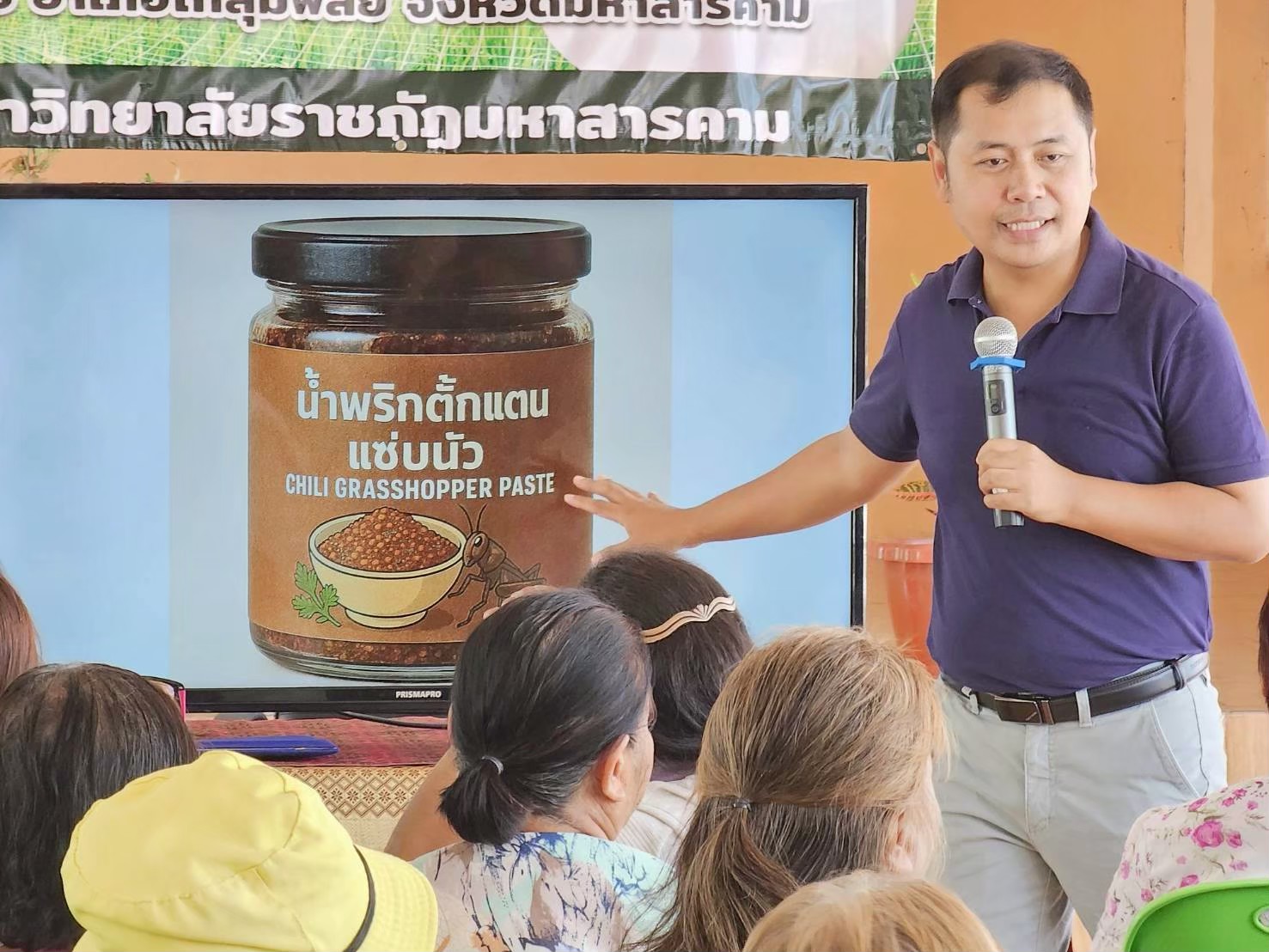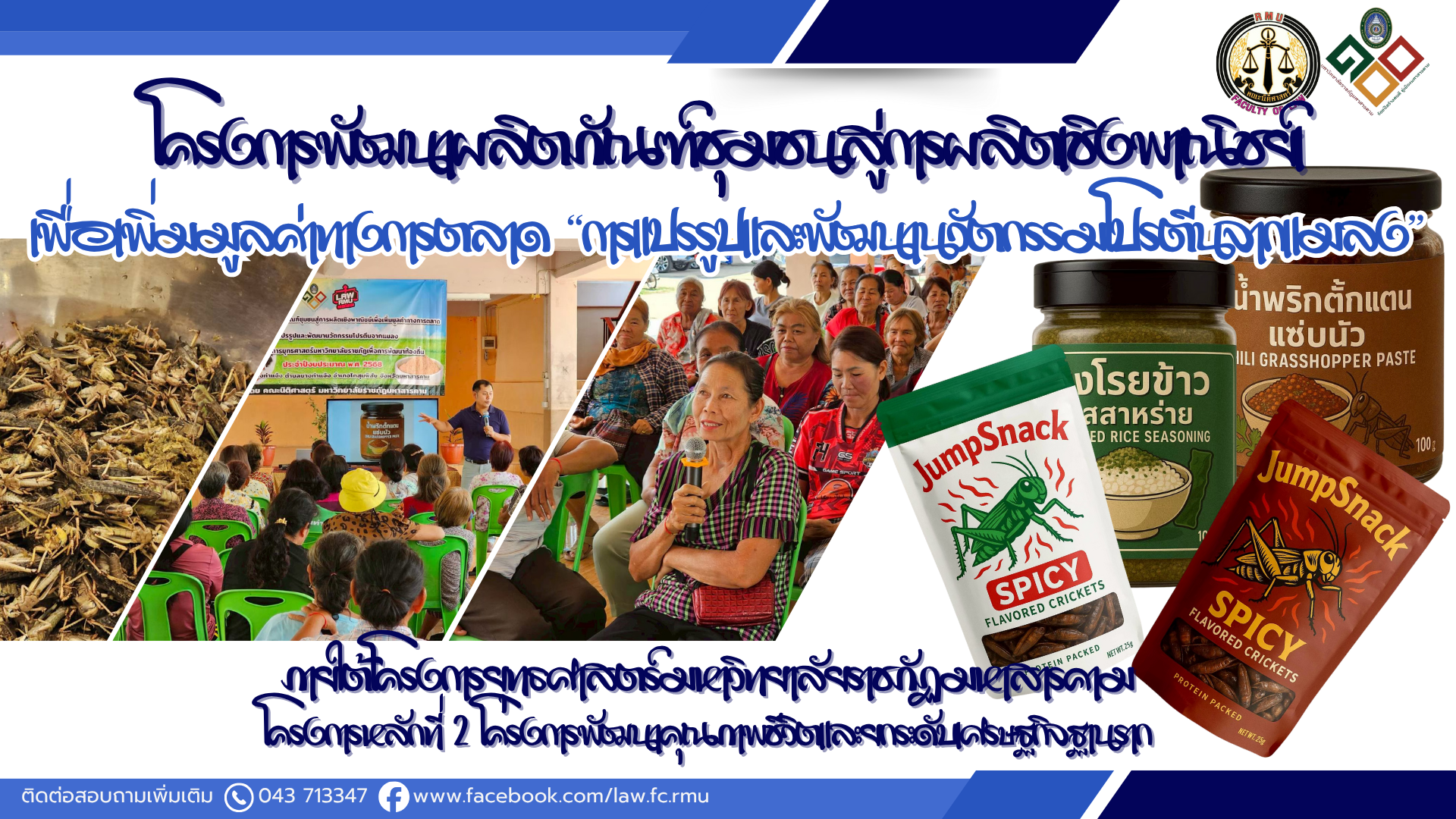
Community Product Development toward Commercialization: Processing and Innovation in Insect-Based Protein Products
ผู้รับผิดชอบ ให้ข้อมูล : Dr.Krit Sintusiri
SDG ที่เกี่ยวข้อง
เป้าหมายย่อยความสอดคล้องกับยุทธศาสตร์มหาวิทยาลัย : พันธกิจสัมพันธ์เพื่อการพัฒนาท้องถิ่นอย่างสร้างสรรค
แหล่งงบประมาณ : งบประมาณแผ่นดิน
กลุ่มเป้าหมาย : ชุมชน
Project Implementation Area : Yang Tha Chaeng Village ตำบล Yang Tha Chaeng อำเภอ Kosum Phisai จังหวัด Maha Sarakham 44140
Project Duration: January 13, 2025 – August 14, 2026
Objectives :
1. To build knowledge and understanding of insect farming as a protein source for human consumption.
2. To develop innovative insect-based protein products and processing methods.
3. To create new careers for the community and generate income through employment
Activities :
Insect Farming for Protein:
- Study community needs and demand for insect protein farming.
- Conduct insect farming for human consumption.
- Design and install insect-rearing facilities.
Innovation and Processing of Insect-Based Protein:
- Design and develop innovative methods for insect processing as a protein source.
- Conduct training on the use of innovative insect processing technologies.
Community Product Standards:
- Establish product standards for community-consumed insect products.
- Provide training on product standard compliance to expand market opportunities.
Reflection and Knowledge Sharing:
Conduct seminars to reflect on the use of innovations to increase community product output.
Number of project participants: 90 people
Project Budget: 250,000 Baht
Results :
1. Community members in Ban Yang Tha Chaeng gain knowledge of insect farming and can develop new income-generating activities.
2. At least one prototype of an insect-based protein product has been developed, such as crispy grasshoppers or insect protein chili paste.
3. At least 60 community members and entrepreneurs receive training and can apply the knowledge in actual production.
4. University students and faculty collaboratively create learning materials, including insect farming manuals and Insect Rearing Feed Guides, for educational and outreach purposes.
Integration with the Law Program curriculum to enhance students’ skills in community engagement and business management.
Results society :
Economic Impact:
- Increase community household income by at least 10% from insect protein product sales.
- Provide new market channels and support commercialization of community products.
- Foster networks of new local entrepreneurs, building a sustainable community economy.
Social Impact:
- Improve community knowledge of modern technologies combined with traditional wisdom.
- Strengthen collaboration between communities, local agencies, and the university for grassroots economic development.
- Establish a model for safe and healthy alternative protein consumption.
Educational Impact:
- Develop students’ skills in innovation, community collaboration, and knowledge transfer.
- Enable faculty to conduct research and outreach to benefit local development.
- Create an integrated learning resource on insect farming for protein.
Environmental Impact:
- Promote sustainable insect farming practices with reduced resources and chemical usage.
- Support safe and environmentally friendly agricultural practices.
- Provide an alternative food production model that reduces reliance on traditional livestock and its environmental impact.
Participation :
- 20 students participate in all project phases, from planning to fieldwork and evaluation.
- 9 faculty members from the Law Program act as coordinators, trainers, and network facilitators.
- Collaboration with internal university units (Faculty of Agricultural Technology) and external agencies (Provincial Agriculture Office) is established
Project continuity :
- Develop the project into a permanent activity under the Faculty of Law: “Alternative Protein Innovation for Sustainable Communities.”
- Potential to expand as a model project for other areas in Maha Sarakham Province.
- Developed products can be certified under community product standards (OTOP / GI / CPS).
- Serve as a data and learning resource for courses in environmental law and community business management.
Problems obstacles :
1. Some community members lack understanding of commercial insect farming, requiring extended training and follow-up.
2. Budget limitations for promotional materials and prototype packaging.
3. Coordination delays with external agencies due to official procedures.
4. Extreme heat during the dry season affects insect rearing in some production cycles.
Improvement :
1. Develop the next-phase project to enhance weather-resilient insect farming technologies.
2. Strengthen collaboration with marketing agencies (Provincial Commerce Office, SME Bank, Community Development Office) to expand distribution channels.
3. Conduct additional training on community product standards and creative packaging to increase product value.
4. Develop an online knowledge database to disseminate insect protein processing information to the public.
Suggestions :
1. Support continuous funding to establish a Community Insect Protein Innovation Center under the Faculty of Law.
2. Promote the project as Best Practice in academic service for local development.
3. Integrate with other faculties (Science and Technology and Management Sciences) to produce fully developed prototypes.
4. Implement a continuous SROI (Social Return on Investment) monitoring system to measure social impact effectively.
